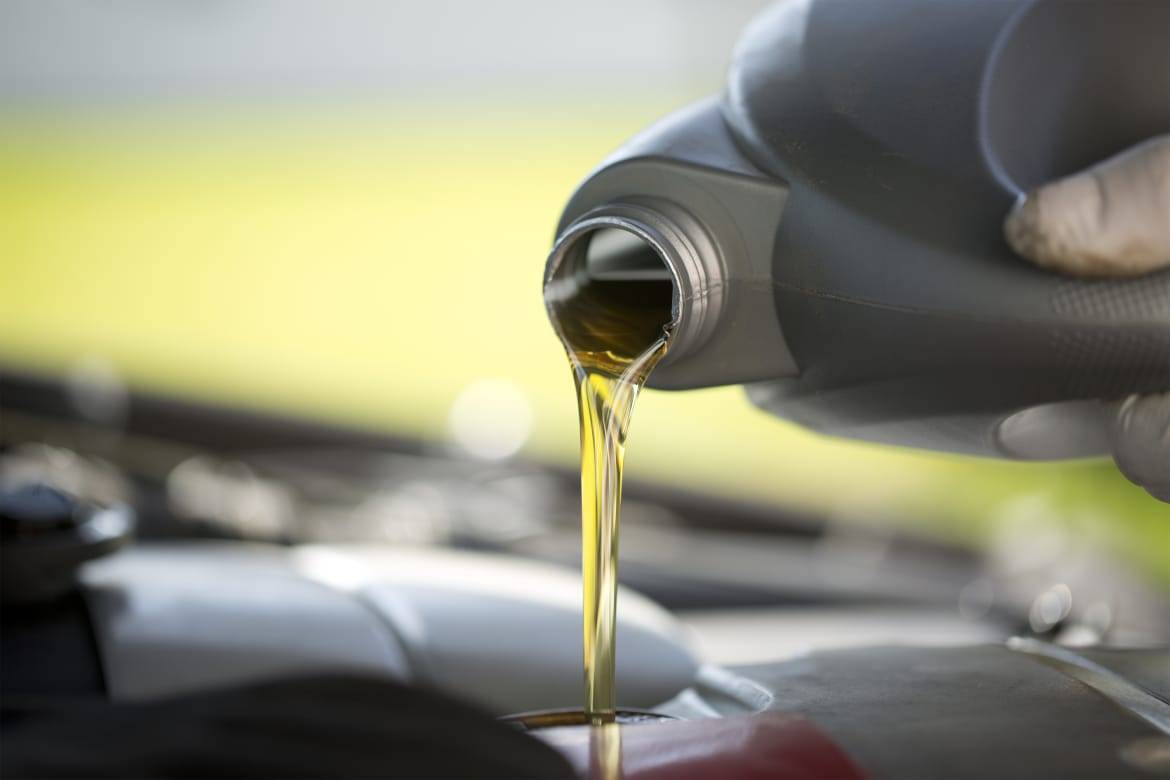Car Oil Dipstick Reads Low but After Driving Shows Normal
NEWS
Car Burning Oil: How Much Consumption Is 'Normal'?

HyperionPixels/iStock/ThinkStock |
Past Rick Popely
January 3, 2016
Considering of clothing, vehicles are more likely to consume engine oil every bit they age. Called-for oil is a mutual problem, only when it is ignored, information technology can do major impairment to your car's engine. Mutual culprits that result in burning oil include worn valve stems, guides and seals, and piston rings, all of which can permit oil to seep into combustion chambers. If engine oil gets in the combustion bedroom it will fire, possibly in amounts small enough not to produce telltale blue smoke in the exhaust, only plenty to notice when you check the car's dipstick.
Related: More than Maintenance Coverage
And so how much burning oil is "normal," and when does information technology become excessive? And what if it's a relatively new engine, such as one with fewer than 25,000 miles on it?
"Normal" Oil Burning in One Vehicle May Be Excessive in Another
While oil burning is a relatively common problem, manufacturers don't provide uniform guidance on this consequence, then what might be normal for one engine could be excessive for another. For example, BMW tells owners it's normal for some of its engines to burn a quart of oil in fewer than a yard miles. In a tip sheet to armada-vehicle operators, GM says normal consumption "can be in the range of one quart within two,000 miles on a properly driven and maintained vehicle." Other manufacturers say nothing in their owner's manuals about oil consumption — and if you enquire what'south "normal," the answer you go may depend on whom you talk to.
As a rule, most engines with fewer than 50,000 miles shouldn't use much more than a quart of oil between oil changes (unless the manufacturer says differently). If an engine requires a quart every, say, 3,000 miles or less, that could be a sign of a leak (which may not be easily visible) or of internal engine problems, such as worn valve guides, piston rings or any of a number of different types of seals. Once an engine gets beyond perhaps 75,000 miles, and certainly by 100,000, increased oil consumption should exist expected.
In addition, many newer engines utilize thinner, lower-viscosity oil, such as 5W20 or 0W20 instead of, say, 10W30. Considering these oils are thinner, it'south easier for them to skid past gaskets, seals and rings that accept worn even slightly over time, thus increasing oil consumption.
What to Do When Y'all Have a Car Burning Oil
If the smoke coming from your tailpipe has a blue tint, this is a surefire sign that your car is burning oil and non but gasoline. When your car is leaking oil into the combustion sleeping accommodation, you take a serious trouble that needs to be addressed as quickly as possible. Even if you don't observe fume coming from your exhaust, something still is non right if your car is consuming too much oil between oil changes. While a simple tuneup may be all that is needed to solve the trouble, more in-depth repairs may besides be required.
Given the lack of uniformity concerning oil consumption, the best approach is to regularly check your oil level and have a mechanic wait for leaks if your engine is burning through oil. Knowing typical oil consumption over a few years or thousands of miles for a particular engine volition provide a basis for determining when consumption becomes excessive and possibly alert yous that a leak or internal problem has adult. Even minor oil leaks demand to be monitored and addressed as chop-chop as possible to avoid serious impairment to your car's engine.
Lawsuits Due to Cars Excessively Burning Oil
Consumers have their own ideas about how much is normal and take sued several manufacturers in recent years over claims of excessive oil consumption, including Audi, BMW, Honda, Subaru and Toyota. Widespread complaints from owners have prodded some manufacturers to extend warranties or replace engine parts (and the engine itself in some cases), though individual consumers usually take to social club a complaint with a dealer or machine company to get any repairs.
More From Cars.com:
- Oil Changes: What You Need to Know
- How Practise I Know When Information technology's Time for an Oil Change?
- Is Oil for Loftier-Mileage Engines Worth the Extra Price?
- Do You lot Actually Demand to Alter Your Oil Every three,000 Miles?How Much Oil Consumption Is "Normal"?
- Does My Car Need Synthetic Oil?
Honda, for instance, extended the engine warranty on its 2008-11 Accords and 2010-11 CR-Vs with iv-cylinder engines to viii years/125,000 miles because owners experienced excessive oil consumption of up to 1 quart every one thousand miles. For owners who said their vehicles used a quart every 3,000 miles, Honda said it would monitor consumption and perform boosted tests.
Cars.com's Editorial department is your source for automotive news and reviews. In line with Cars.com's long-standing ethics policy, editors and reviewers don't take gifts or costless trips from automakers. The Editorial department is contained of Cars.com's advertising, sales and sponsored content departments.
Car Oil Dipstick Reads Low but After Driving Shows Normal
Source: https://www.cars.com/articles/how-much-oil-consumption-is-normal-1420682864535/